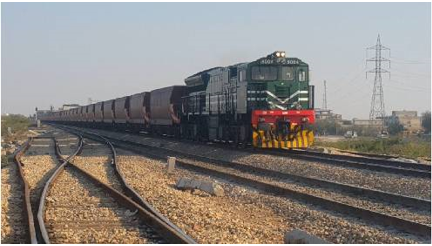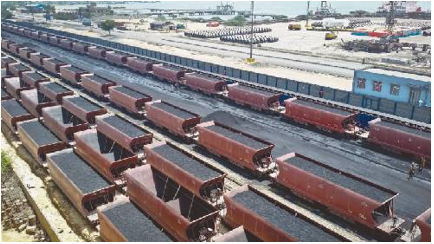INP-WealthPk
Ahmed Khan Malik
Imported coal costs Pakistan $2 billion annually seriously denting the central bank reserves. However, the Thar Coal Railway Project will reduce the country’s reliance on the imported coal, reports WealthPK.

The contract for 105-kilometer line connecting Chorr to Islamkot to ferry coal closer to the power stations and industrial users has been awarded recently. “The project aims to reduce reliance on the imported coal, which currently costs about $2 billion annually. This project will support the government’s goal to increase the use of domestic lignite coal resources, of which Thar is rich,” Shariq Ahmed, Director of Sindh Coal Authority, told WealthPK.
He said the proposed railway network will have the capacity to transport 10 million tons of coal annually, shifting Pakistan’s power generation from imported to domestic coal, and reducing reliance on the costly fuel imports.

The project is part of the government’s strategy to shift the coal-based power plants from imported to Thar coal – a cheaper and indigenous alternative. Construction of seven railway stations along the route, featuring 14 platforms, is a key component of the project. Of the seven stations, two major stations would be established at the Thar coal mines and new Chhor station, while there would be five intermediate stations between the two major stations.
He said the government was desperately working to cut the electricity prices, which had skyrocketed in recent years, triggering a public backlash. Imported coal is the main reason for the soaring electricity prices, and the government wants to replace it with the Thar coal. The Thar coalfield, with a resource potential of 175 billion tonnes of coal, covers an area of over 9,000 sq km in the Thar Desert in Thar Parkar district. The investigated area is covered by stable sand dunes and there are no rock exposures. “The recent energy market disruptions and sharp spike in the fuel prices should be a wake-up call for us.
Thar coal can be the next big opportunity for Pakistan (after the discovery of Sui’s now depleted gas reserves) to achieve energy security and power our economy,” Shariq said. The country’s longstanding electricity woes leading to long-duration blackouts could be overcome through the Thar coal, which would be transported soon after the completion of the railway connectivity project. He said the project’s total cost was Rs58 billion, which would be equally shared by the federal and Sindh governments. The federal government will allocate the funds soon.
Credit: INP-WealthPk













